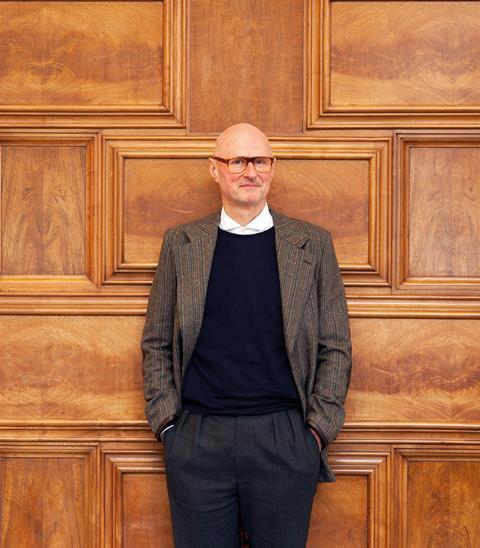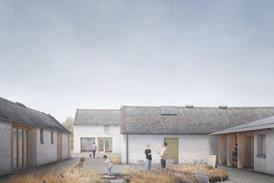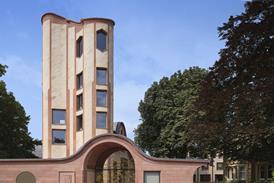Simon Allford says he does “not see much change” in reforms aiming to make the profession more accessible
RIBA has criticised Arb’s proposals to scrap the three-part system of architectural education, saying the plan will fail to make the profession more accessible.
In comments which will deepen an ongoing rift between the two bodies over the future of education and training in the sector, RIBA president Simon Allford said he does “not see much change” in the proposed reforms.
Yesterday, Arb unveiled plans to replace parts I, II and III qualifications with a two-part system which will focus on outcomes rather than prescribing what should be taught.
Trainee architects would be allowed to pass the first stage through an apprenticeship or another form of non-university education before progressing to the second stage, consisting of working in a practice to apply what has been learned.

The regulator, which has been given new powers under the Building Safety Act to monitor the training and development of architects throughout their careers, said the new approach will diversify the profession by providing more flexible routes to registration.
It also said the system will allow learning providers to innovate and “maintain their global reputation for quality”.
> Also read: Parts I, II and III will be abolished under Arb educatinoal reforms
But Allford said Arb’s model does not “go far enough” in creating a “truly inclusive profession” as it does not fully align with a pair of reports published by the institution looking into options for educational reforms.
“At present, I do not see much change,” he said. “The Arb accreditation model does not allow the new courses we are supporting to create a more accessible and open and representative profession. Nor does it speed things up.”
Allford added: “We need to support courses that recognise and reinforce the need for core skills and competencies, but also the essential requirement to equip the next generation to create ever-evolving and appropriately different models of practice.
“Students need to both acquire core skills and have the imagination to adapt them to help the profession respond to and define an uncertain future – the architects of tomorrow will face different challenges to those of today’s curriculum.”
Allford says the view was reinforced a few weeks ago when RIBA hosted an away day on education and practice where the institute heard from students, educators, practitioners and Arb on the financial challenges presented by the current model and the debts accumulated by students.
While he said he was “personally…a fan” of the architectural degree as a good springboard to a range of different careers, Allford said he would like to see a structure that allows students to select from a combination of apprenticeships, degrees, masters, and earn and learn courses, with the latter to be offered by schools and teaching practices. He said he wants a model which allows students to qualify within five years.
Arb has not yet specified how long it would take trainees to register under its proposed reforms, although the government is understood to be keen to take advantage of post-Brexit deregulation allowing architects to register in under five years, which is the current minimum time set under EU directives.
RIBA urged its members to respond to an online survey launched by Arb yesterday which is gathering responses to the proposed reforms.
“We must take this once-in-a-generation opportunity to ensure that changes to our world-renowned architectural education system benefit everyone,” Allford said.
Arb has been contacted for comment.
















6 Readers' comments